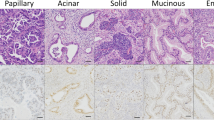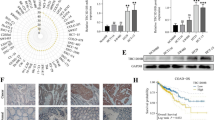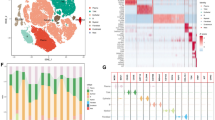Abstract
Lung and colorectal cancers are the most common types of cancer characterized by a poor prognosis and a high mortality rate. Mutations in the genes encoding components of the main intra- and extracellular signaling pathways, in particular the NOTCH1 gene (Notch1, a member of the Notch family of receptors), play one of the key roles in progression of these malignancies. Notch signaling is involved in maintaining homeostasis of the intestinal epithelium and structural and functional lung elements. Therefore, it is not surprising that the constitutive activity and hyperactivity of Notch signaling due to somatic mutations in genes coding for the products directly involved into its activation, could lead to the progression of these cancer types. The aim of our study was to investigate how the NOTCH1 downregulation via RNA interference (RNAi) affects the phenotype, characteristics, and Notch-dependent signaling of human A549 lung and HCT116 colorectal carcinoma cells. Several small harpin RNAs (shRNAs) were selected using the bioinformatic analysis and tested for their ability to suppress the NOTCH1 expression. The most efficient one was used to produce the A549 and HCT116 cells with NOTCH1 knockdown. The obtained cell lines demonstrated decreased proliferation rates, reduced colony-forming capacity under adhesive conditions, and decreased migration activity in a Boyden chamber. The NOTCH1 knockdown also significantly decreased expression of some Notch signaling target genes potentially involved in the acquisition and maintenance of more invasive and malignant cell phenotype. In vivo experiments in immunodeficient athymic female Balb/c nu/nu mice confirmed the results obtained in vitro: the NOTCH1 inhibition decreased the growth rates of the subcutaneous xenografts formed by A549 and HCT116 tumor cells. Therefore, downregulation of the gene encoding the Notch1 receptor potentially reduces malignant characteristics of human lung and colorectal carcinoma cells.




Similar content being viewed by others
Abbreviations
- GSI:
-
gamma-secretase inhibitor
- RNAi:
-
RNA interference
- qPCR:
-
quantitative PCR
- shRNA:
-
small harpin RNA
References
Kopan, R., and Ilagan, M. X. (2009) The canonical Notch signaling pathway: unfolding the activation mechanism, Cell, 137, 216-233, https://doi.org/10.1016/j.cell.2009.03.045.
Radtke, F., Clevers, H., and Riccio, O. (2006) From gut homeostasis to cancer, Curr. Mol. Med., 6, 275-289, https://doi.org/10.2174/156652406776894527.
Xu, K., Moghal, N., and Egan, S. E. (2012) Notch signaling in lung development and disease, Adv. Exp. Med. Biol., 727, 89-98, https://doi.org/10.1007/978-1-4614-0899-4_7.
Salon, C., Lantuejoul, S., Eymin, B., Gazzeri, S., Brambilla, C., et al. (2005) The E-cadherin-beta-catenin complex and its implication in lung cancer progression and prognosis, Future Oncol., 1, 649-660, https://doi.org/10.2217/14796694.1.5.649.
Yang, G., Zhou, R., Guo, X., Yan, C., Lei, J., et al. (2021) Structural basis of γ-secretase inhibition and modulation by small molecule drugs, Cell, 184, 521-533, https://doi.org/10.1016/j.cell.2020.11.049.
Pandya, K., Meeke, K., Clementz, A. G., Rogowski, A., Roberts, J., et al. (2011) Targeting both Notch and ErbB-2 signalling pathways is required for prevention of ErbB-2-positive breast tumour recurrence, Br. J. Cancer, 105, 796-806, https://doi.org/10.1038/bjc.2011.321.
Van Es, J. H., van Gijn, M. E., Riccio, O., van den Born, M., Vooijs, M., et al. (2005) Notch/gamma-secretase inhibition turns proliferative cells in intestinal crypts and adenomas into goblet cells, Nature, 435, 959-963, https://doi.org/10.1038/nature03659.
Krop, I., Demuth, T., Guthrie, T., Wen, P. Y., Mason, W. P., et al. (2012) Phase I pharmacologic and pharmacodynamic study of the gamma secretase (Notch) inhibitor MK-0752 in adult patients with advanced solid tumors, J. Clin. Oncol., 30, 2307-2313, https://doi.org/10.1200/JCO.2011.39.1540.
Dumortier, A., Durham, A. D., Piazza, M. D., Vauclair, S., Koch, U., et al. (2010) Atopic dermatitis-like disease and associated lethal myeloproliferative disorder arise from loss of Notch signaling in the murine skin, PLoS One, 5, e9258, https://doi.org/10.1371/journal.pone.0009258.
Messersmith, W. A., Shapiro, G. I., Cleary, J. M., Jimeno, A., Dasari, A., et al. (2015) A Phase I, dose-finding study in patients with advanced solid malignancies of the oral γ-secretase inhibitor PF-03084014, Clin. Cancer Res., 21, 60-67, https://doi.org/10.1158/1078-0432.CCR-14-0607.
Greife, A., Jankowiak, S., Steinbring, J., Nikpour, P., Niegisch, G., et al. (2014) Canonical Notch signalling is inactive in urothelial carcinoma, BMC Cancer, 14, 628, https://doi.org/10.1186/1471-2407-14-628.
Maraver, A., Fernandez-Marcos, P. J., Cash, T. P., Mendez-Pertuz, M., Duenas, M., et al. (2015) NOTCH pathway inactivation promotes bladder cancer progression, J. Clin. Invest., 125, 824-830, https://doi.org/10.1172/JCI78185.
Rampias, T., Vgenopoulou, P., Avgeris, M., Polyzos, A., Stravodimos, K., et al. (2014) A new tumor suppressor role for the Notch pathway in bladder cancer, Nat. Med., 20, 1199-1205, https://doi.org/10.1038/nm.3678.
Funding
This work was supported by the Russian Science Foundation (project no. 20-15-00321).
Author information
Authors and Affiliations
Contributions
M.V. analyzed the published data, carried out the experiments and wrote the article. N.K. carried out the experiments. B.K. contributed to the statistical analysis of the results. V.D. carried out the experiments. P.K. designed the study, carried out the experiments and wrote the article.
Corresponding author
Ethics declarations
The authors declare no conflict of interest. The animal study protocol was approved by the Biomedical Ethics Committee of Blokhin National Medical Research Center of Oncology. The study was performed in accordance with all ethical standards for the animal treatment adopted by the European Convention for the Protection of Vertebrate Animals used for Experimental and Other Scientific Purposes.
Rights and permissions
About this article
Cite this article
Vasileva, M.V., Khromova, N.V., Kopnin, B.P. et al. Significance of NOTCH1 Expression in the Progression of Human Lung and Colorectal Cancers. Biochemistry Moscow 87, 1199–1205 (2022). https://doi.org/10.1134/S0006297922100133
Received:
Revised:
Accepted:
Published:
Issue Date:
DOI: https://doi.org/10.1134/S0006297922100133




